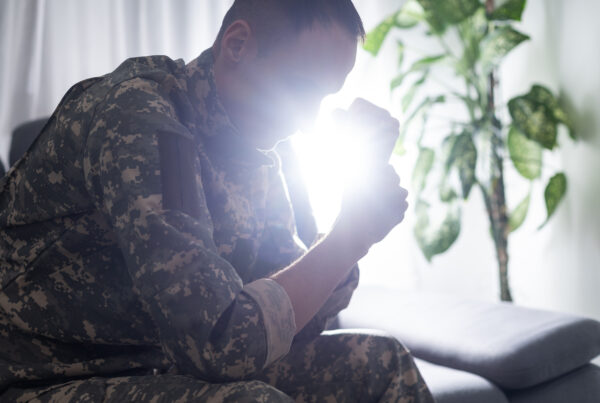”Question: How does poor sleep quality contribute to the health challenges you experience?
Reading time: 6 Minutes
MWi Hack:
- Poor sleep doesn’t just make you tired—it’s a multiplier that worsens every other health condition Veterans face, from PTSD and chronic pain to heart disease and depression, yet most don’t know the VA offers proven non-medication treatments like CBT-I that can break this cycle.
MWi Summary:
- Sleep is a top concern: MWi survey data shows sleep quality ranks as a leading health issue for the military and Veteran community, acting as both a symptom and catalyst for cascading problems like cardiovascular disease, diabetes, depression, anxiety, and chronic pain.
- Military life creates unique sleep challenges: Combat exposure, family separation, frequent relocations, PTSD nightmares, and hypervigilance create sleep problems that persist long after service ends—with Veterans experiencing significantly higher rates of sleep disturbances than civilians.
- Stress and sleep feed each other: The bidirectional relationship between stress and sleep creates a vicious cycle, with International Stress Awareness Week (November 3-7) highlighting how addressing one condition therapeutically improves the other.
- Effective non-medication treatments exist: Evidence-based interventions like Cognitive Behavioral Therapy for Insomnia (CBT-I), mindfulness meditation, and breathing exercises directly improve sleep by reducing stress hormones—yet most members don’t know these options are available through VA and military health systems.
- Caregivers need sleep support too: Military and Veteran caregivers face chronic sleep disruption from overnight care duties and constant vigilance, creating exhaustion that compromises their health and ability to provide quality care, yet they rarely prioritize their own sleep needs.
As International Stress Awareness Week (November 3-7) brings attention to the critical relationship between stress and overall health, new data from MWi’s annual survey reveals a troubling reality for the military and Veteran community: sleep quality has emerged as a top health concern, and it’s intricately connected to nearly every other challenge our community faces.
Hidden in Plain Sight
Poor sleep and insomnia aren’t just inconveniences—they’re both symptoms and catalysts for a cascade of serious health issues affecting service members, Veterans, and their families. The MWi survey data shows that sleep dysfunction acts as a critical intervention point that compounds multiple conditions simultaneously, including cardiovascular disease, diabetes, obesity, depression, anxiety, cognitive decline, and chronic pain.
This isn’t simply about feeling tired. For the military community, disrupted sleep represents a complex web of interconnected health challenges that demand attention, particularly during a week dedicated to understanding how stress impacts our lives.
Why Military Families Face Unique Sleep-Stress Challenges
The relationship between sleep and stress operates as a vicious cycle, and military life adds layers of complexity that civilian populations rarely encounter. Service members face stressors that directly assault their ability to rest: separation from family during deployments, combat exposure that creates lasting hypervigilance, frequent relocations that disrupt routines, and the challenging transition to civilian life.
These unique pressures don’t just cause temporary sleep problems—they compound pre-existing sleep disorders like insomnia, obstructive sleep apnea, and PTSD-related nightmares. Research consistently shows that Veterans experience significantly higher rates of sleep disturbances compared to civilian populations, with service-connected conditions persisting long after discharge. The stress of military service literally rewires sleep patterns in ways that can last a lifetime.
Evidence-Based Solutions Exist—But Awareness Gaps Remain
Here’s the encouraging news: effective, non-pharmaceutical interventions exist that address both sleep and stress simultaneously. Evidence-based techniques like Cognitive Behavioral Therapy for Insomnia (CBT-I), mindfulness meditation, progressive muscle relaxation, and controlled breathing exercises directly improve sleep quality by reducing cortisol levels and calming the hyperarousal that keeps so many service members and Veterans awake at night.
These approaches work by breaking the sleep-stress cycle at its root—they don’t just mask symptoms but actually retrain the body’s stress response and sleep architecture. Yet MWi members consistently report limited awareness of these non-pharmacological interventions available through VA and military health systems. Many believe prescription sleep medications represent their only option, missing out on treatments that often prove more effective for long-term sleep restoration.
Caregivers: The Overlooked Population
Military and Veteran caregivers face their own sleep-stress crisis that often goes unrecognized. Overnight care responsibilities, hypervigilance while monitoring loved ones with PTSD or traumatic brain injuries, and the accumulated stress of navigating complex healthcare systems create chronic exhaustion that impacts caregivers’ own health, decision-making ability, and capacity to provide quality care over extended periods.
When caregivers can’t sleep, the entire family system suffers. Yet these essential family members rarely prioritize their own sleep health, viewing their exhaustion as an inevitable cost of caregiving rather than a treatable condition deserving attention.
Breaking Down Barriers to Treatment
Despite comprehensive sleep and mental health programs available through VA and military treatment facilities, MWi members report significant confusion about accessing sleep studies, behavioral health services for stress management, and integrated care approaches that address both conditions simultaneously. Awareness gaps and persistent stigma around seeking mental health support prevent optimal utilization of services specifically designed for these interconnected issues.
This International Stress Awareness Week offers an opportunity to change that narrative. By recognizing sleep quality as the critical health concern it represents—and understanding its bidirectional relationship with stress—military families can begin advocating for the comprehensive, coordinated care they deserve. The resources exist; now we need to ensure our community knows how to access them and feels empowered to do so without stigma or confusion.
Through our responsive content and dedicated support, MWi continues to serve the modern military and Veteran community by providing relevant, practical strategies for enhancing connection and wellness. Click below to see more articles:






